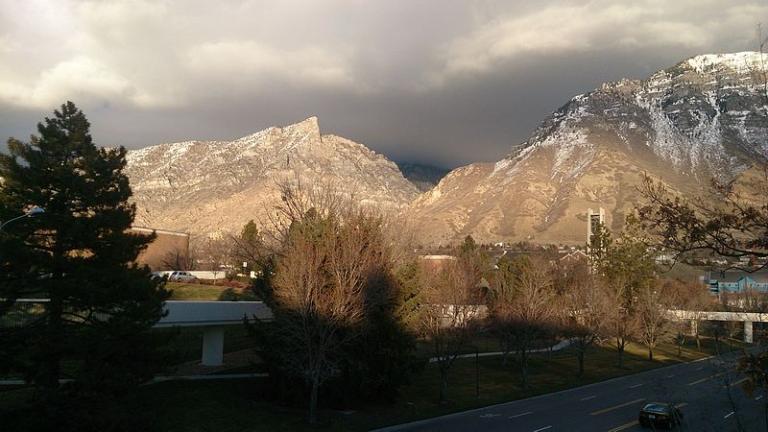
Here’s a column that I published in the Deseret News on Thanksgiving Day 2010:
Most modern Americans are so far removed from farming—we get our milk from cartons, our meat neatly packaged at the grocery store, our grains in cereal boxes, our cranberries in cans—that we easily forget the agricultural roots of Thanksgiving Day. But Thanksgiving is a harvest festival, and similar celebrations of bounteous crops (always an uncertainty) have occurred for millennia in such places as Korea, India, Turkmenistan, Nigeria, China, Vietnam, Argentina, and Persia. The ancient Jewish feast of tabernacles, or “Sukkot,” was such an occasion. The settlers of Plymouth Plantation in the Massachusetts Bay Colony celebrated Thanksgiving in 1621, but harvest festivals had already occurred in Canada in 1578 and among Spanish explorers in Florida in 1565.
Our technology is so successful today, our supply lines so reliable, our supermarkets so well stocked, that we seldom consider our dependence upon vital things such as rain and temperate weather that are far beyond our control. Furthermore, we are all beneficiaries of laws we didn’t enact, moral principles we didn’t invent, minerals we didn’t mine, gasoline for which we didn’t drill, sacrifices of ancestors we’ve forgotten, languages we inherited painlessly as children, literature we didn’t write, roads we didn’t pave, art we didn’t create, cities we didn’t build, clothing we didn’t sew, sciences we don’t even understand.
But our dependence goes far deeper than that. We live on a privileged planet, tilted the right way, the right distance from the right kind of sun, at the right point in the right kind of galaxy. And we live in what some have called a “Goldilocks universe.” It, too, is just right.
If gravity were stronger or weaker by one part in ten to the fortieth power—that’s a one followed by forty zeros—life-sustaining stars like our sun could not exist.
If the “big bang” that created our universe had differed in strength by as little as one part in ten to the sixtieth power, it would have quickly collapsed back on itself or else expanded too rapidly for stars to form. In either case, life would be impossible. (This degree of accuracy can be compared to firing a bullet across the observable universe, twenty billion light years, and hitting a one-inch target.)
At the beginning, the ratio of matter to antimatter had to be accurate to one part in ten billion for the universe to arise.
If the strong nuclear force that binds protons and neutrons together in the atom were stronger or weaker by as little as five percent, life would be impossible.
If neutrons were not roughly 1.001 times the mass of protons, all protons would have decayed into neutrons or all neutrons would have decayed into protons. Life would not be possible.
When hydrogen is converted to helium, precisely 0.007 percent of its mass must be transformed into energy. If that value were lowered to 0.006, no transformation could take place; the universe would consist only of hydrogen. If the figure were 0.008, hydrogen would long since have been depleted and, among many other things, there would be no water.
It is, the great British physicist Sir Fred Hoyle once said, as if “a super-intellect has been monkeying with the laws of physics.”
“The fulness of the earth is yours,” says the Lord, “the beasts of the field and the fowls of the air, and that which climbeth upon the trees and walketh upon the earth; yea, and the herb, and the good things which come of the earth, whether for food or for raiment, or for houses, or for barns, or for orchards, or for gardens, or for vineyards; yea, all things which come of the earth, in the season thereof, are made for the benefit and the use of man, both to please the eye and to gladden the heart; yea, for food and for raiment, for taste and for smell, to strengthen the body and to enliven the soul. And it pleaseth God that he hath given all these things unto man; for unto this end were they made to be used . . . And in nothing doth man offend God, or against none is his wrath kindled, save those who confess not his hand in all things, and obey not his commandments” (Doctrine and Covenants 59:16-21).
This Thanksgiving, let us remember the Person to whom we owe true thanks.










